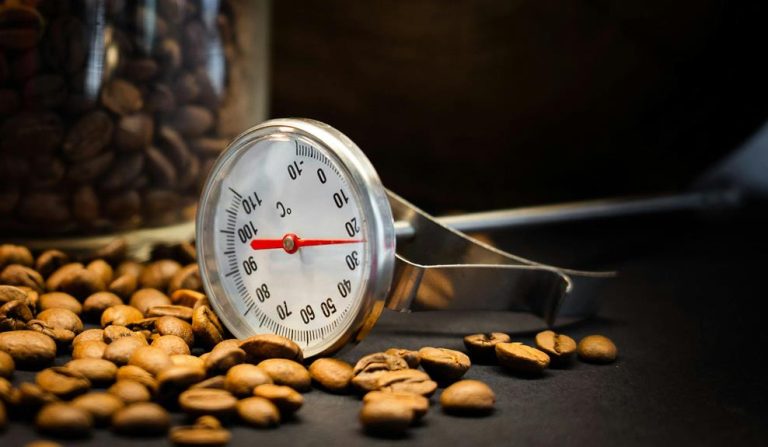Does Coffee Cause Erectile Dysfunction? A Health-Focused Examination

As we explore the connection between coffee and erectile dysfunction, we find ourselves traversing a complex web of research and opinions. While moderate coffee consumption appears to have some positive effects on sexual health, excessive intake raises concerns about potential risks. It's essential to take into account not just caffeine's role but also how lifestyle factors intertwine with our overall well-being. So, what does the latest evidence really say about our beloved morning brew and its impact on erectile function? Let's uncover the nuances together.
Understanding Erectile Dysfunction
Erectile dysfunction (ED) can be a complex issue, affecting not just physical health but also emotional well-being and relationships.
We recognize that psychological factors, such as stress and anxiety, play a significant role in ED.
Additionally, lifestyle influences, including diet and exercise, can further complicate the situation.
Addressing these elements is essential for a thorough understanding and effective management of erectile dysfunction.
The Role of Caffeine
Caffeine, consumed by millions daily, has sparked considerable interest regarding its potential impact on erectile function.
Various caffeine sources, like coffee and energy drinks, provide different levels of stimulation.
Understanding caffeine metabolism is vital, as it affects how our bodies process this stimulant.
This metabolic process may influence blood flow and vascular health, both essential for maintaining erectile function.
Research Studies Overview
In examining the relationship between coffee and erectile dysfunction, we can summarize key findings from various studies.
We'll look at caffeine's physiological effects and how these might correlate with sexual health.
Study Findings Summary
Recent studies have explored the relationship between coffee consumption and erectile dysfunction, revealing intriguing insights.
While some research suggests that moderate coffee intake may have no significant impact on erectile function, other studies highlight lifestyle factors like diet and exercise as critical variables.
Additionally, exploring coffee alternatives could provide valuable options for those concerned about potential risks associated with caffeine consumption.
Caffeine's Physiological Effects
Understanding how caffeine affects our bodies is essential when examining its potential link to erectile dysfunction. Research highlights caffeine's role in metabolism and its neurotransmitter effects, influencing blood flow and hormonal regulation. Below is a summary of key research findings:
| Study Focus | Findings | Implications |
|---|---|---|
| Caffeine Metabolism | Increases energy levels | Potentially enhances sexual performance |
| Neurotransmitter Effects | Affects serotonin levels | May influence mood and arousal |
| Blood Flow | Vasodilation observed | Improves erectile function |
| Hormonal Regulation | Alters testosterone | Could impact libido |
Correlation With Sexual Health
The relationship between caffeine consumption and sexual health has sparked considerable interest in research circles.
Studies indicate that moderate caffeine intake may support sexual wellness, particularly by enhancing blood flow.
However, we must consider other lifestyle factors influencing erectile function, such as diet, exercise, and stress levels.
As we explore these connections, it's essential to approach findings with a critical eye.
Coffee Consumption Patterns
Exploring coffee consumption patterns reveals a complex relationship between caffeine intake and overall health.
We notice diverse coffee trends influenced by cultural preferences, which shape how individuals engage with this popular beverage. For instance, some cultures favor espresso, while others lean towards brewed coffee.
Understanding these patterns helps us evaluate potential health impacts, including any associations with erectile dysfunction.
Potential Risks of Excessive Intake
When we consider the potential risks of excessive coffee intake, several factors come into play that could affect our overall health and performance.
High caffeine levels may impact blood flow, potentially leading to complications, while dehydration can further hinder our physical capabilities.
Additionally, we must be aware of hormonal imbalances that excessive coffee consumption might trigger, which can also influence sexual health.
Caffeine and Blood Flow
Caffeine's impact on blood flow can raise concerns, especially regarding its potential risks when consumed in excessive amounts. High caffeine intake may affect caffeine metabolism and arterial health, leading to potential vascular issues. We should consider these factors when evaluating our caffeine consumption.
| Potential Effects | Description |
|---|---|
| Increased Heart Rate | May strain arterial health |
| Decreased Blood Flow | Impacts erectile function |
| Vascular Resistance | Alters blood vessel function |
| Long-term Risks | Possible chronic health issues |
Dehydration and Performance
Excessive caffeine intake can lead to dehydration, which poses risks to both physical performance and overall health.
Studies show that inadequate hydration negatively impacts athletic performance, reducing endurance and increasing fatigue.
To counteract these effects, we should implement effective hydration strategies, such as drinking water and electrolyte-rich beverages.
Hormonal Imbalance Concerns
Understanding the potential hormonal imbalances linked to high caffeine consumption is essential for maintaining our overall health.
Excessive intake can lead to hormonal fluctuations that disrupt endocrine health, potentially impacting testosterone levels and overall sexual function.
Benefits of Moderate Coffee Consumption
When we consider the benefits of moderate coffee consumption, it's clear that this beloved beverage offers more than just a morning pick-me-up. Its antioxidant properties can combat oxidative stress, while its mood enhancement effects may help improve our overall well-being.
| Benefit | Description | Evidence |
|---|---|---|
| Antioxidant Properties | Reduces oxidative stress | Multiple studies confirm |
| Mood Enhancement | Enhances mood and cognitive function | Research supports claims |
| Reduced Risk of Disease | Linked to lower risk of certain diseases | Epidemiological studies |
| Social Interaction | Coffee culture fosters social connections | Observational insights |
Expert Opinions and Recommendations
While the benefits of moderate coffee consumption are well-documented, it's important to contemplate expert opinions regarding its potential risks, particularly in relation to erectile dysfunction (ED).
Experts suggest that while caffeine habits may not directly cause ED, excessive intake could negatively impact sexual wellness.
We should aim for moderation and consult healthcare professionals to tailor our approach to caffeine consumption and overall health.
Conclusion
To sum up, it's clear that moderate coffee consumption doesn't directly cause erectile dysfunction and may even offer some benefits, such as enhanced blood flow and mood. However, we must remain cautious about excessive caffeine intake, which can lead to negative health effects. By adopting a holistic approach that considers diet, stress management, and overall lifestyle, we can better understand and support sexual health. Balancing coffee consumption with these factors is essential for ideal well-being.






